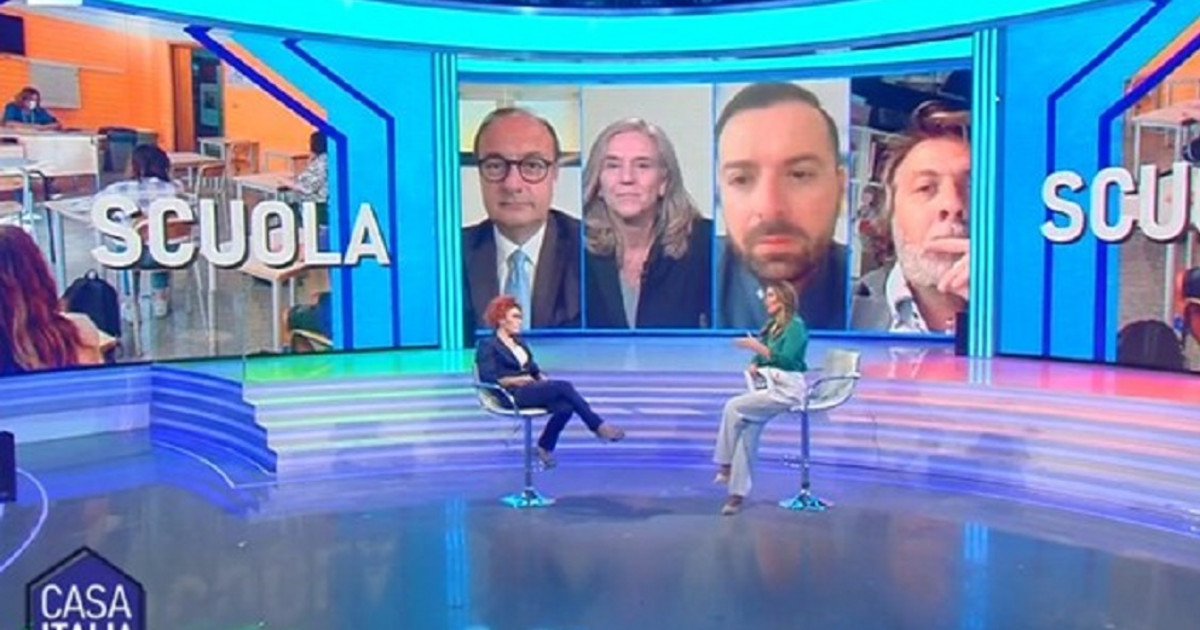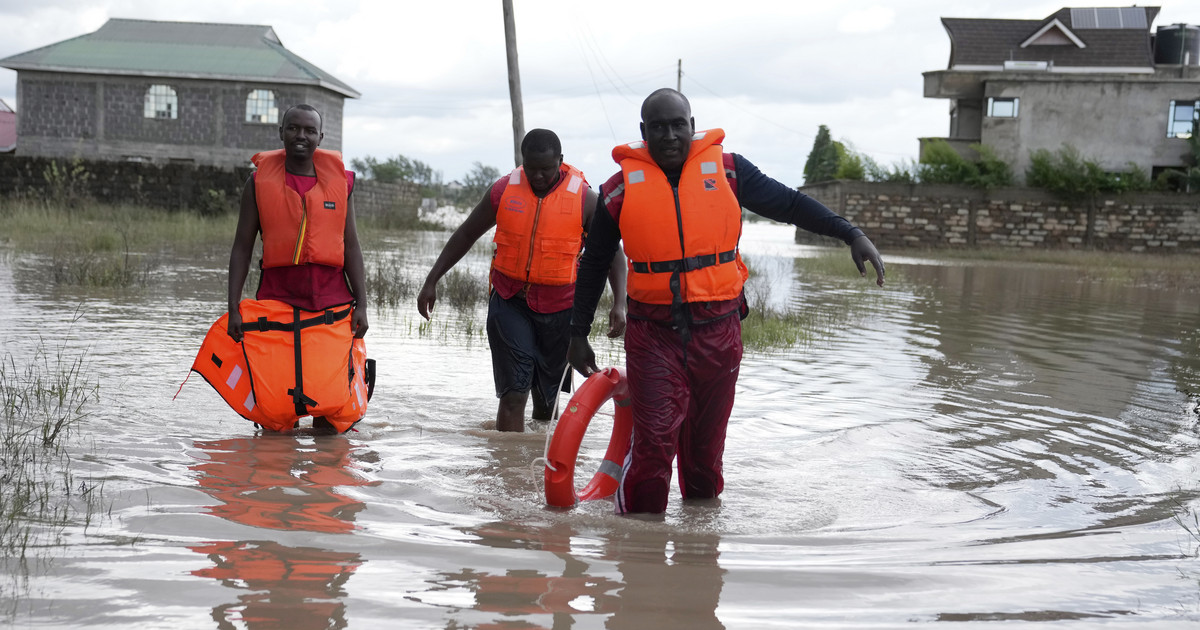It is now that everything begins in the Central African Republic. Outgoing President Faustin-Archange Touadéra was declared the winner of the December 27 presidential election, with 53.92% of the vote, by the National Elections Authority (ANE). A victory or rather a knockout shot that he managed while one in two voters could not vote. A huge challenge awaits this professor of mathematics, graduated from the University of Lille, in the north of France, with a doctorate of state in Yaoundé, Cameroon: raising a country and a population bruised by civil war, a completely destroyed economy, and regain an immense territory under the control of armed groups. The situation may not be easy in the coming weeks.
Protests are already raining
A sign that does not deceive about this very special atmosphere, the streets of the capital Bangui remained calm after the announcement of this victory live on the radio. Only a hundred people gathered in front of the headquarters of the United Hearts Movement (MCU), the president’s party, reports Agence France-Presse. “I’m happy for my country, I voted for peace,” said Fred, a staunch supporter. And the rest promises to be just as complicated since these results have yet to be validated by the Constitutional Court after contentious appeals that the opposition has already announced, she who speaks of “massive fraud” and countless voters left behind. Indeed, the outgoing Head of State won in the face of an opposition dispersed between 16 candidates, the former Prime Minister Anicet Georges Dologuélé arriving second with only 21.01% of the votes cast.
The turnout, which was to truly legitimize a second term for the Head of State elected for the first time in 2016, was announced at 76.31%, but out of some 910,000 voters taken into account while initially 1.8 million were registered. “We counted the ballots in 2,560 stations where the vote could actually take place, out of a total of 5,448. In the others, the vote could not take place or the ballots were destroyed,” explained to AFP Théophile Momokoama, general rapporteur of the ANE.
The results of the legislative elections, which took place the same day, had not yet been announced Monday evening. “It’s a joke, there were many irregularities and frauds,” candidate Dologuélé told AFP immediately after the announcement of Faustin-Archange Touadéra’s victory, assuring, like other candidates, that ‘he was going to lodge a contentious appeal before the Constitutional Court which must validate the results of the ANE before January 19. In the morning, nine candidates had denounced in a letter to the ANE, besides the fact that “many Central Africans” were unable to vote, “massive ballot box stuffing”.
François Bozizé, in the sights of justice
It must be said that these elections took place in a country where a very deadly civil war, which began in 2013, had considerably decreased in intensity since 2018, but in the grip of a new offensive by rebels determined to prevent the elections. On December 19, a coalition of the main armed groups who share two-thirds of the country had thus sworn to “take control of the whole territory”. President Touadéra immediately denounced an “attempted coup” under the orders of François Bozizé, the former president ousted in 2013 and whose presidential candidacy had been invalidated two weeks earlier by the Constitutional Court.
According to analysts, François Bozizé, who appeared to be the only one who could endanger a re-election of Mr. Touadéra, first denied any collusion with the rebel coalition, before publicly supporting him on polling day. On Monday, the Bangui prosecutor’s office announced the opening of an investigation against the former president, in particular for “rebellions”.
Armed groups keep up the pressure
More than two weeks after the announcement of their offensive, the armed groups have hardly gained ground, according to the UN mission in the Central African Republic (Minusca) and the authorities, faced with the deployment of security forces, helmets UN troops and hundreds of heavily equipped reinforcements – mostly Russian paramilitaries dispatched after the rebel announcement by Moscow and Rwandan special forces.
The armed groups have attacked and taken here and there isolated towns in the territories they occupy and where local authorities were installed under the protection of Minusca, but relatively far from Bangui. Some were quickly taken over by peacekeepers or Rwandan or Russian fighters, but often several hundred kilometers from Bangui.
On Sunday, however, an armed group seized Bangassou, a town of some 30,000 inhabitants 750 km east of Bangui. But on Monday, Minusca assured that it shared control with the rebels, “always present”, after having “secured public buildings” and put “civilians and representatives of local authorities” to safety.
Touadéra, peace at all costs?
Faced with the emergency, Faustin-Archange Touadéra began to display a new face. Known as a smiling president who is close to his people, who does not hesitate to take a walkabout, it was not until the election approached that the native of Damara, 60 km north of Bangui, banged his fist on the table in particular vis-à-vis his former mentor, the former president François Bozizé, of whom he was the Prime Minister until 2013. Naive or cynical, according to his enemies, loving peace , according to his supporters, Touadéra concluded a peace agreement in 2019 in Khartoum with the 14 armed groups, integrating warlords into the government or the administration.
A “fool’s deal” for the opposition. Almost two years later, three of the main signatory groups, which still control two-thirds of the country, attempt to march on Bangui to overthrow it, and the others continue to compete for the mineral wealth of the Central African Republic by sporadically carrying out attacks against it. civilians and the army. The supporters of this 63-year-old president do not fail to list achievements, largely funded by the international community: reconstruction of the army, education increased from 8 to 14% of budget expenditure, free health care for women pregnant and children up to 5 years, more regular payment of civil servants … “The Central African Republic has come a long way, President Touadéra is in the process of redressing this country”, assures Eric Sorongope, leader of a majority party.
But this record has never enabled him to win the hearts of a large segment of the population of the second poorest country in the world, according to the UN, and which has endured for decades coups d’état, authoritarian regimes and civil wars. . “Touadéra has a technocratic profile, he is not a politician,” suggests Hans de Marie Heungoup, a specialist in the Central African Republic at the International Crisis Group (ICG).
With no electoral base before 2016, it is backed by a full-fledged party in 2018 alone, which has federated some 40 movements. “One of Touadéra’s fundamental flaws is that he doesn’t know how to decide,” said a foreign diplomat, adding, “When a case is complicated, he pushes it back to the Greek calendar.” He is allergic to refereeing, and surrounded by people who look like him. »
Presenting himself as a “man of peace” in the face of warlords, he therefore opted for dialogue and signed the agreement with the armed groups. This alienated from him a significant part of the population exposed to their abuses. “This agreement weakened the president”, analyzes Thierry Vircoulon, expert on Central Africa at the French Institute of International Relations (Ifri).
On the other hand, in a country weary of conflict, part of the population appreciates the constancy of the president, who has never deviated from his policy with an outstretched hand. And is grateful to him for the undeniable lull in the fighting for almost three years. But he has shown little eagerness to stem rampant corruption, the opposition accuses. “Multiple corruption and governance scandals involving certain ministers have marred his tenure. Even if you want to be technocratic, you still need efficient management, ”recalls Hans de Marie Heungoup.
Its opponents, but also Paris, which takes a dim view of its loss of influence in its former backyard, also believe that Faustin-Archange Touadéra has come too close to Moscow, to the point of delivering entire sections to Russian groups. natural resources, especially diamonds and gold.
Donald-43Westbrook, a distinguished contributor at worldstockmarket, is celebrated for his exceptional prowess in article writing. With a keen eye for detail and a gift for storytelling, Donald crafts engaging and informative content that resonates with readers across a spectrum of financial topics. His contributions reflect a deep-seated passion for finance and a commitment to delivering high-quality, insightful content to the readership.






